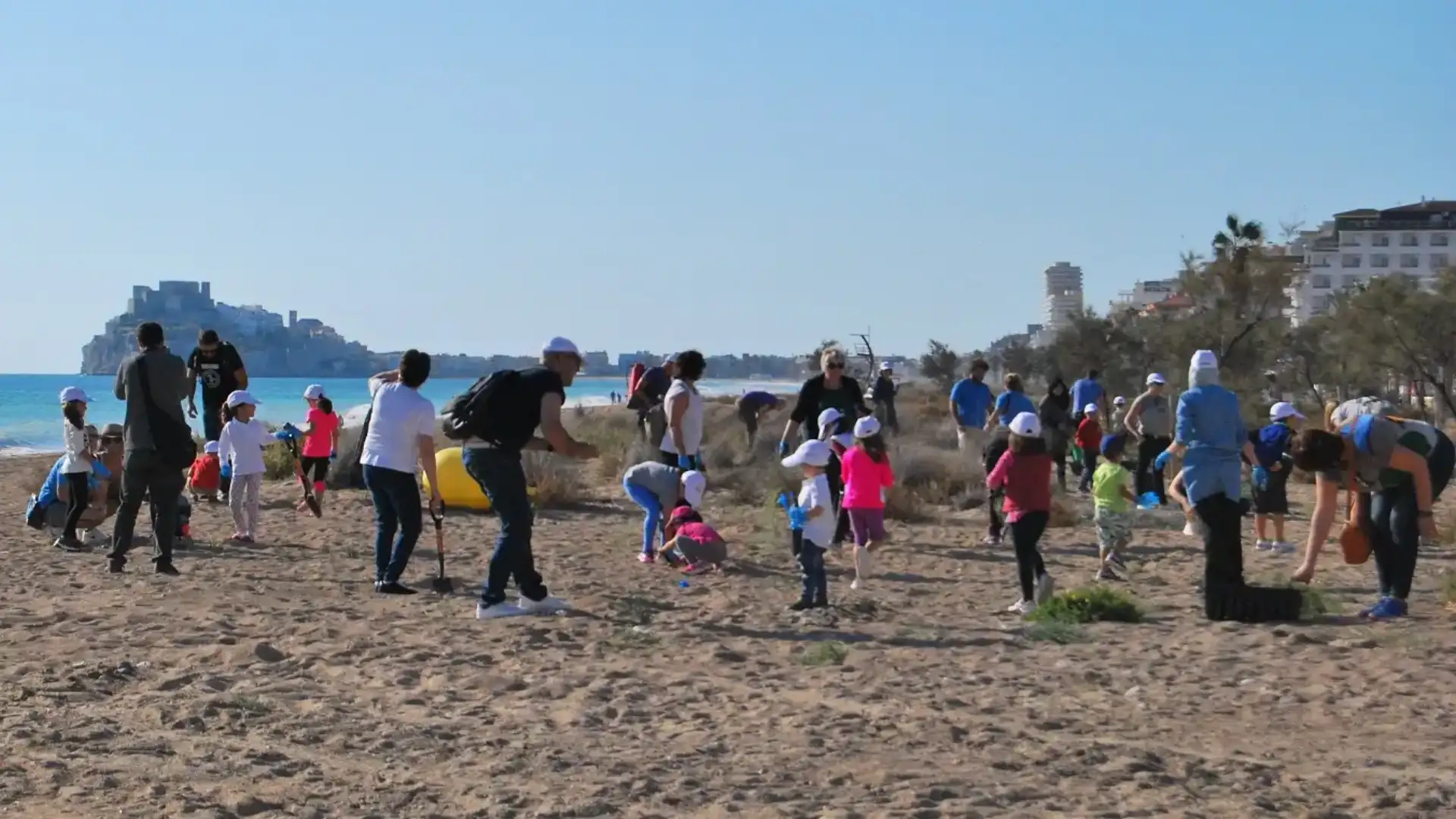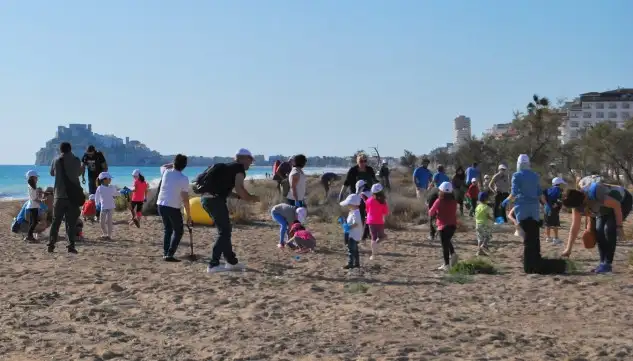
Tragsa and Ecomar regenerate the dunes of the northern beach of Peñíscola
Tragsa and Ecomar regenerate the dunes of the northern beach of Peñíscola

Children and adults have participated in this solidarity activity to replant the species that had disappeared from the dunes due to the effect of the seasons and the action of the tourists
The reforestation and regeneration of the dunes is not something new for the Tragsa Group: for 40 years, by the Ministry of the Environment, the company has been carrying out plantations of indigenous species in places damaged by the temporary, the fire or the activity of man. However, on Saturday the replanting has had two characteristics that have made it different from the others: it has had the participation of the little ones, and it has been done in solidarity.
The Ecomar Foundation and the small and older volunteers of the Tragsa Group have approached the North Beach of Peñíscola this morning, where the dunes had lost much of their vegetation. These sand formations play a fundamental role on the coasts, as they are a natural barrier to the effects of the seasons and the plants that grow on them make them more resistant to wind and erosion.
About 100 volunteers of all ages have come to the North Beach equipped with planting kits and 2000 plants, all of which are donated by the Tragsa Group. The species that have been planted include those known as the sand chart (Elymus farctus), the beach carret (Marine Medicago), or the sea horn (Lotus creticus). By using the shovel and the water the participants have returned the natural value to the 1,500 square meters that needed the intervention, and have received a small explanation from the monitors of Ecomar about the importance of the conservation of the dunes and their flora.
© 2024 Nautica Digital Europe - www.nauticadigital.eu











